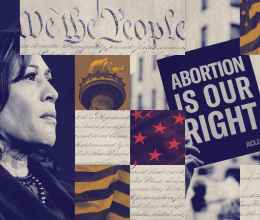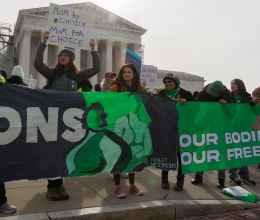ALBUQUERQUE, NM—Today, the American Civil Liberties Union (ACLU) of New Mexico and the Southwest Women’s Law Center (SWLC) filed two complaints on behalf of a mother and her daughter with the New Mexico Human Rights Bureau alleging that a Walgreens pharmacy in Albuquerque, NM discriminated against a female patient by refusing to fill a prescription related to her birth control. The complaints allege that this denial of service, based upon the individual pharmacist’s personal objections, constitutes discrimination based on sex, an illegal practice under the New Mexico Human Rights Act.
“Women should be able to walk into any pharmacy that serves the public with full confidence that they will receive the care and medicine they need without being disrespected and discriminated against,” said ACLU attorney Erin Armstrong. “Birth control and other medications related to reproductive health are a vital part of healthcare for women. Walgreens can work to accommodate the personal beliefs of its employees, but they must not do so by permitting discriminatory denials of care that burden their patients and customers.”
On August 9, 2016, M.S. (initials used to protect the client’s privacy) went to her neighborhood Walgreens pharmacy to fill three medications prescribed for her teenage daughter in preparation for an IUD insertion procedure scheduled for the following day. At the pharmacy, M.S. was told that she must travel to another pharmacy to pick up Misoprostol, one of the three prescribed medications, which is commonly used for ulcer treatment and for various reproductive health purposes, including cervical preparation before IUD insertion. When M.S. asked for an explanation, the pharmacist on duty told her that, despite having the medication currently in stock, he refused to fill the prescription because of his “personal beliefs.” In addition to the significant inconvenience of having to travel to an alternate pharmacy in rush hour traffic to obtain the time-sensitive, prescribed medication, M.S. and her daughter experienced the emotional impact of discrimination. M.S. felt judged, disrespected, and embarrassed by the incident; her daughter felt extremely uncomfortable at the prospect of having to seek a pharmacist’s personal approval to access her chosen and prescribed contraceptive care.
This incident was not the first time Walgreens pharmacists in Albuquerque have refused to provide women medications related to reproductive healthcare. In 2012, the ACLU of New Mexico and SWLC contacted Walgreens over similar allegations that Walgreens’ pharmacists in Albuquerque refused to fill prescriptions for clients’ contraceptives on at least two separate occasions. After receiving assurances from Walgreens that any accommodation of their employees’ personal beliefs would be handled “without imposing any burden on the customer,” the ACLU and SWLC agreed not to move forward with filing complaints under the NM Human Rights Act at that time. This more recent incident demonstrates that Walgreens’ policies continue to burden women by turning them away and sending them elsewhere when Walgreens’ employees refuse to fill their reproductive health prescriptions. To date, the ACLU and SWLC have been unsuccessful in securing a further commitment from Walgreens that this discriminatory treatment will not continue.
“Had a man shown up with a prescription for the same medication to treat stomach ulcers, we have no doubt he would have received his medication immediately,” said Pamelya Herndon, Executive Director of SWLC. “But because our client was a woman, the Walgreens employee automatically assumed the medication was for a reproductive health purpose that he personally opposed, forcing her to travel to a different pharmacy. That’s not right. Women deserve the same level of care and respect as men in a Walgreens pharmacy.”







